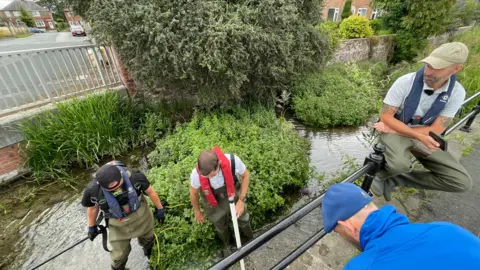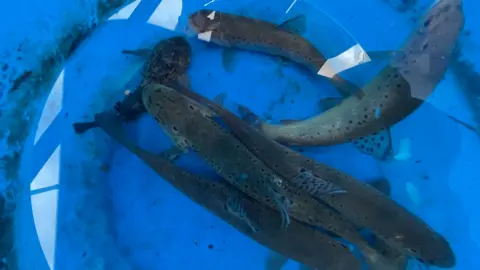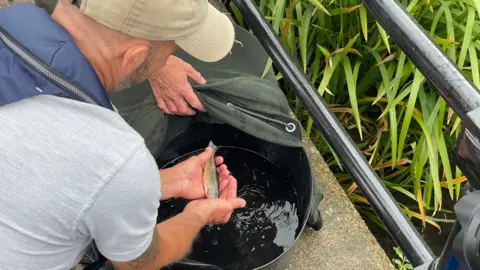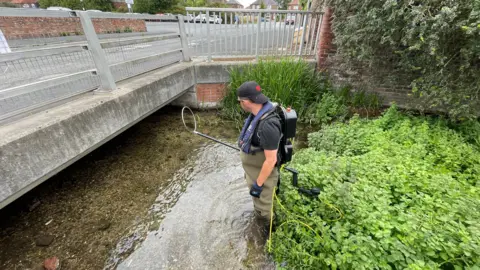Fish rescued as river levels drop due to drought
 BBC
BBCHundreds of fish have been rescued from a stream in Driffield following concerns that water levels had become too low for them to survive.
Conservationists from East Yorkshire Rivers Trust have relocated the creatures to deeper water along the same stream.
The move comes as river levels throughout Yorkshire continue to fall, following the lowest rainfall levels in more than a century.
The fish, including small brown trout, were electrically stunned before being netted and removed from the stream.

There has been growing concern for fish life as river levels have continued to drop, especially in smaller streams.
Matt Arnold from East Yorkshire Rivers Trust said the fish rescue was essential: "We've had the driest spring and summer for 130 years and this small stream is becoming too low for fish life."
Mr Arnold said it would take months for the river system to "recharge".
"We're in July and we've potentially got another three dry months and we don't want to get to the stage where these fish are lying in puddles and being picked off by gulls and other predators."


The dry conditions are continuing to have an impact on a wide range of wildlife.
Following the recent hosepipe ban in the Yorkshire Water area, Yorkshire Wildlife Trust said the dry period was affecting a range of local plant and animal species.
Jon Traill from the trust said he had particular concerns about East Yorkshire's water vole population: "It's a really good example where the name gives a clue, water is essential for its survival."
Mr Traill said the trust had seen a lot of success in improving vole populations in recent years but water was the "essential ingredient".
"It's a creature that can survive without water but the vole uses water to get around and also to avoid predation," he said.

The fish are being rescued from the stream in Driffield using electrical anodes which stun and allow them to be easily netted.
Oliver Southgate from East Yorkshire Rivers Trust said this was the best method of removing them from the river with minimal stress.
"The fish are totally fine. They are stunned for a few seconds, netted out and transferred to a well-oxygenated cooler water," he said.
The operation to rescue the fish is expected to continue throughout the coming weeks.
Listen to highlights from Hull and East Yorkshire on BBC Sounds, watch the latest episode of Look North or tell us about a story you think we should be covering here.
Download the BBC News app from the App Store for iPhone and iPad or Google Play for Android devices
